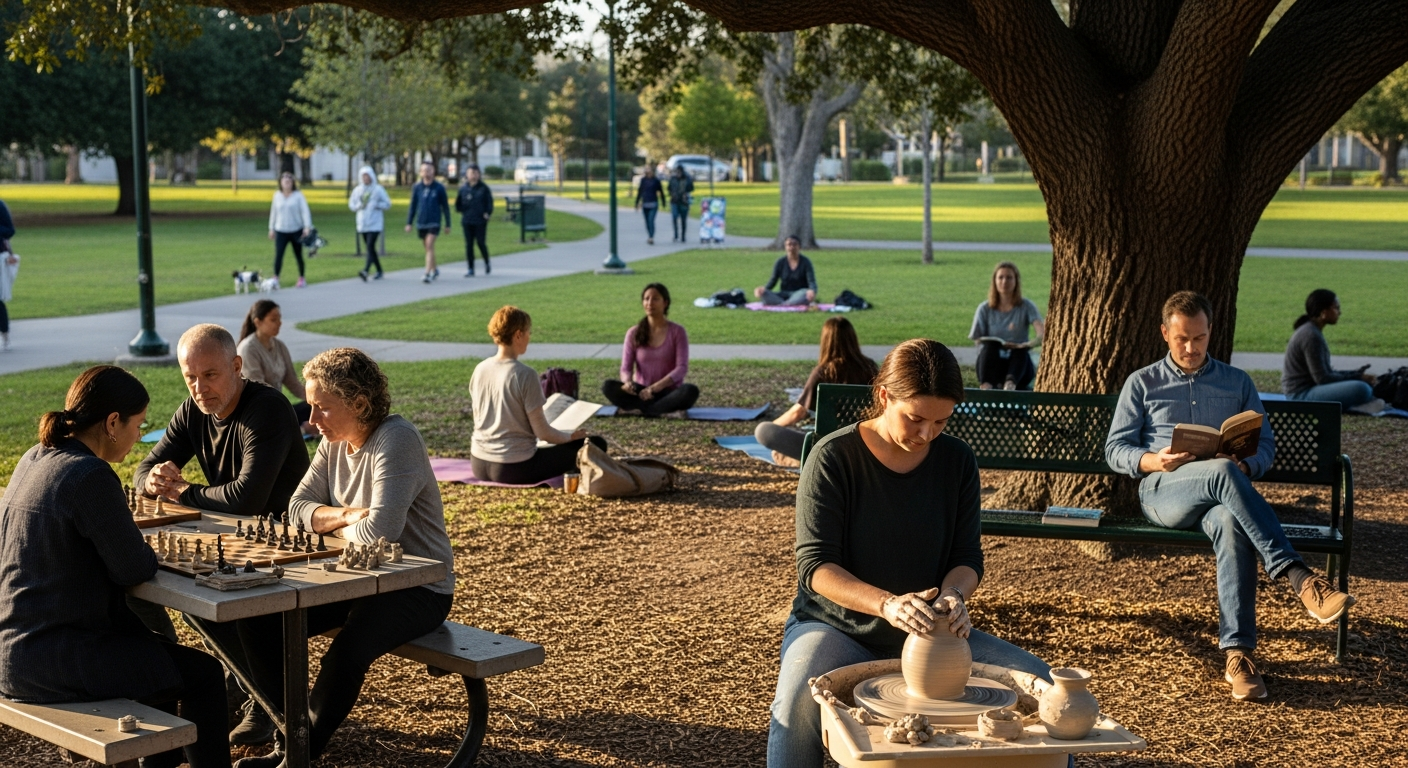Soulful Sustainability: Mindful Consumption in the Age of Abundance
In a world brimming with choices, a quiet revolution is taking root. Soulful sustainability, the art of mindful consumption, is reshaping how we interact with the material world. This movement goes beyond mere eco-friendliness, delving into the psychological and social aspects of our relationship with possessions. It challenges us to question not just what we buy, but why we buy it. Read below to explore how this growing trend is transforming lives and potentially, the future of consumerism.

The Roots of Mindful Consumption
The origins of soulful sustainability can be traced back to various philosophical and spiritual traditions that emphasize simplicity and mindfulness. However, its current incarnation is largely a reaction to the excesses of late 20th and early 21st-century consumerism. The 2008 financial crisis served as a wake-up call for many, highlighting the fragility of an economy built on overconsumption and debt.
In the years since, a growing body of research has illuminated the psychological toll of excessive materialism. Studies have shown links between materialistic values and decreased life satisfaction, increased anxiety, and even physical health problems. This mounting evidence has fueled a search for alternative ways of living and consuming that prioritize well-being over wealth accumulation.
The Psychology of Possessions
At the heart of soulful sustainability is a reevaluation of our relationship with possessions. Psychologists have long recognized that humans often imbue objects with emotional significance, using them as extensions of identity or sources of comfort. However, this tendency can become problematic when taken to extremes, leading to compulsive buying, hoarding, or a sense of emptiness when material acquisitions fail to provide lasting happiness.
Mindful consumption encourages individuals to examine the emotional drivers behind their purchasing decisions. It asks us to consider whether a new acquisition will truly enhance our lives or if it’s merely a temporary fix for deeper issues. This introspective approach often leads to a shift in values, with people placing greater emphasis on experiences, relationships, and personal growth over material possessions.
From Mindless to Mindful: Practical Strategies
Adopting a soulfully sustainable lifestyle doesn’t mean rejecting all material pleasures. Rather, it’s about bringing consciousness and intention to our consumer choices. Practitioners often start by conducting a possessions audit, critically examining each item they own and asking whether it truly adds value to their lives. This process can be both liberating and enlightening, revealing patterns of unnecessary consumption and emotional attachments to objects.
Another key strategy is the practice of mindful purchasing. This involves implementing a cooling-off period before making non-essential purchases, allowing time to reflect on whether the item is truly needed or desired. Many adherents of soulful sustainability also adopt a one-in, one-out rule, ensuring that new acquisitions don’t lead to clutter accumulation.
The Ripple Effect: Social and Environmental Impact
While soulful sustainability begins as a personal practice, its effects ripple outward into society and the environment. As individuals reduce their consumption, they naturally decrease their environmental footprint. This shift in consumer behavior is already influencing markets, with companies increasingly focusing on quality, durability, and ethical production to appeal to mindful consumers.
Moreover, the movement is fostering a sense of community and shared purpose. Local swap meets, repair cafes, and skill-sharing workshops are becoming more common, allowing people to connect over shared values of sustainability and simplicity. These initiatives not only reduce waste but also strengthen social bonds and promote a sense of self-sufficiency.
Challenges and Critiques
Despite its growing popularity, soulful sustainability faces several challenges. Critics argue that it’s a privileged movement, accessible primarily to those who can afford to prioritize quality over quantity. There’s also concern that widespread adoption of minimalist lifestyles could have negative economic impacts, particularly in industries reliant on high levels of consumption.
Additionally, some worry that the movement’s emphasis on decluttering and simplification could lead to a homogenization of personal spaces and lifestyles, potentially stifling creativity and individual expression. Balancing the desire for simplicity with the human need for variety and self-expression remains an ongoing challenge for many practitioners.
The Future of Consumption
As we look to the future, soulful sustainability seems poised to play an increasingly significant role in shaping consumer behavior and societal values. The ongoing climate crisis and growing awareness of social inequalities are likely to further fuel interest in more mindful and ethical consumption patterns.
Emerging technologies may also support this shift, with virtual and augmented reality potentially offering new ways to satisfy our desire for novelty and experience without the need for physical consumption. The sharing economy, too, continues to evolve, providing alternatives to ownership that align well with the principles of soulful sustainability.
In conclusion, soulful sustainability represents a profound reimagining of our relationship with the material world. By encouraging mindfulness, intentionality, and a focus on genuine well-being, it offers a path towards a more fulfilling and sustainable way of life. As this movement continues to grow and evolve, it has the potential to reshape not just individual lives, but the very foundations of our consumer-driven society.






